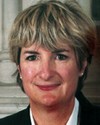Mr. Speaker, this debate needs to focus on the real issues. The hon. member for Winnipeg—Transcona does not appear to have understood the essence of our motion. Since we have been talking about former this and former that, I was surprised to learn that the former NDP leadership candidate did not understand our exact intention. We want the person calling the shots to take over, nothing more.
When I was a kid, we used to have a hymn that went, “The old and the new, there is only one god in the heavens”. Here, two people are trying to rule. That is why nothing is working.
I was listening to the speech by the hon. government House leader. He trotted out everything he could find in Montpetit-Marleau. He tried to make us believe that it would be really horrible if, by some chance, the Liberals dared to vote the way their conscience tells them to.
What would happen if, by chance, the Bloc's motion were carried? Are the Liberals even able to answer that question? Something very simple would happen. In our British parliamentary system, the Governor General would urgently call back from Asia the Prime Minister—who must have travelled there on his Challenger bought from Bombardier—and tell him, “Minister Prime Minister, I think you have a little problem”. He would say, “You are right, Your Excellency. It would seem that I have lost the confidence of the House”.
Having come to that conclusion, what could the Governor General do? She could ask, “Can you think of anyone in your party who could form a majority government?” Now, the cat would be out of the bag. The Prime Minister would say, “Sadly, yes, the member for LaSalle—Émard is ready to take over and form a new government”. The Governor General would then ask him to form a new government. We would not be facing a crisis, as the government House leader would have us believe. We would be out of the current crisis. That would make a big difference.
My hon. colleague and friend from Hyacinthe—Bagot said earlier that the picture of the future prime minister was making the front page of newspapers. That is not all we could see in the papers today. Eddie Goldenberg made a remark in a conversation that was overheard. The PMO is pretty sophisticated now. It can overhear conversations. Mr. Goldenberg, from the PMO, suggested that Team Canada missions abroad would be cancelled under the future prime minister. That is what came out of China today. The Prime Minister was asked about it. He said that, naturally, it would be up to his successor to answer the question.
We could go on for hours listing all the problems we are having because the man pulling the strings and running the show is not among us. He is the invisible man. Yet, like God, he is omnipresent. He influences every government decision. He is just everywhere. We can see him making comments here, and cancelling this or that there. He said we could pass legislation if we wanted to but that, once in office, he would not enforce it.
So, what did the government do? It shelved the bill. It is no longer dealing with it.
Consequently, I think that the fundamental meaning of our motion needs to be understood. We are tired of hearing that, on November 7, we will all go home because we have to wait for the Liberal convention, which will be held on November 15. The current Prime Minister wants to go to Africa, because he has not seen his friends in a long time; he wants to go to Mexico in January and he will do some major house cleaning on Sussex Drive in February. Then, he will let the other one take over.
We are saying that this is taking too much time. As members of Parliament, what are we going to do in the meantime? We will be waiting. We will not even be able to see the Quebec-Windsor train go by, because the Liberals cannot make up their mind; the future prime minister does not want the train, he prefers to fulfil his promises in western Canada and keep the money.
He surely will have plenty of time to choose his cabinet. If the Liberals are to be believed, I think they will break the record of Bangladesh, which has 63 ministers. I believe the Liberals will appoint 64 ministers, because so many backbenchers think they should be appointed to replace the current ministers.
Since the time is short, I believe it is important to get serious about this process. I tried to put some levity in my speech, because it is lunch time. We need to give this motion all the importance it deserves and we need to know that it is in the interests of Canadians that the Bloc motion get massive support from members of the House.


















